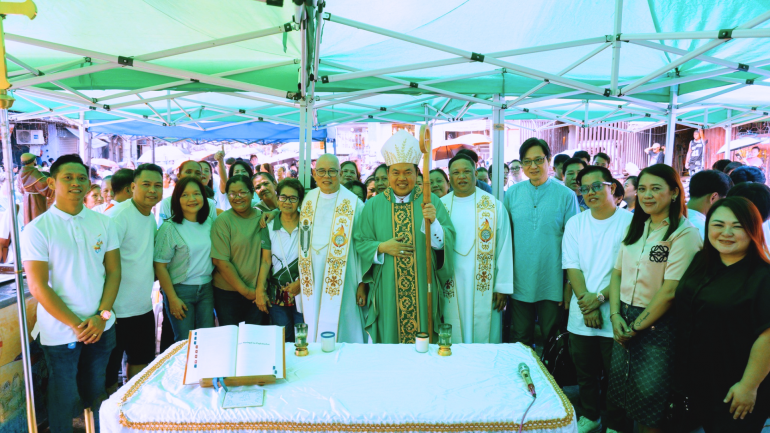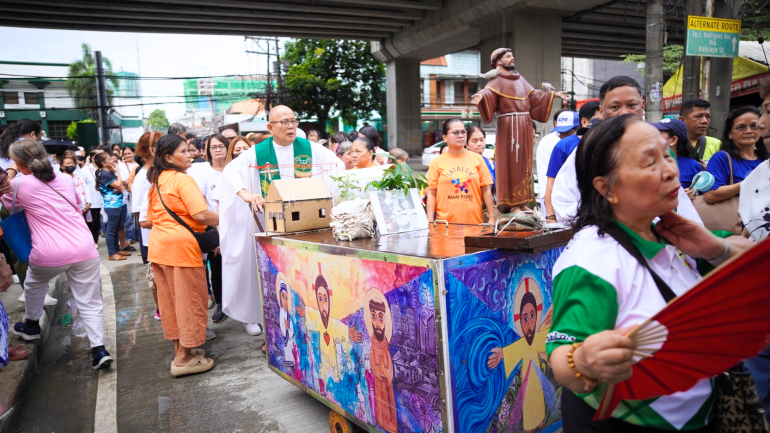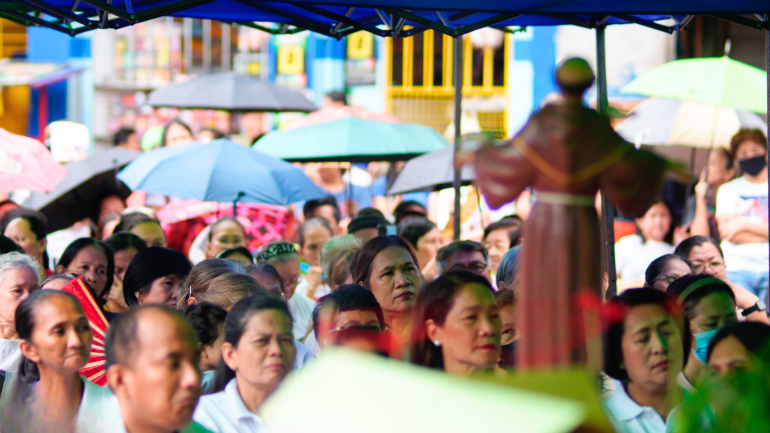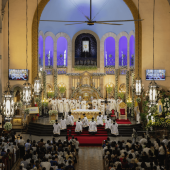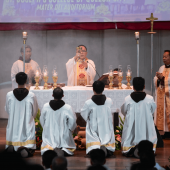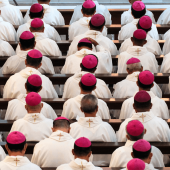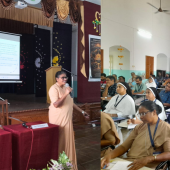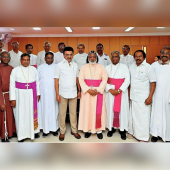Philippines: Cubao Diocese Leads Powerful ‘Kariton ni Kiko’ Walk to Mark World Day of the Poor
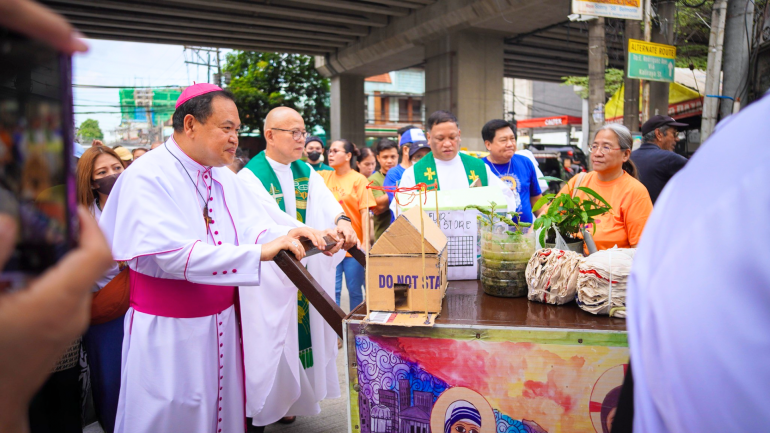
The Diocese of Cubao, Philippines, held its community-based celebration on November 16, beginning with the assembly and symbolic walk before a Holy Mass presided over by Bishop Ayuban.
What began as a quiet morning gathering at Silong Tanglaw in Barangay Tatalon soon unfolded into a moving display of solidarity, as residents, Church workers, and urban-poor families pushed the “kariton ni Kiko”, a cart adorned with an image of St. Francis of Assisi, while walking together through Kaliraya Street to celebrate the World Day of the Poor.
The cart served as a powerful symbol of the plight of families who live with little to call their own, echoing the humble life of St. Francis of Assisi. Bishop Elias L. Ayuban walked with the community, pushing the cart, as a sign of closeness to the poor he serves.
The simple setting, clustered homes, narrow streets, and makeshift shades, became the altar of encounter where the Church and the poor met face to face.
A call to “see with the heart”
In his homily, Bishop Ayuban shared that the World Day of the Poor is not only about giving assistance, but it is also an invitation for deeper awareness and empathy.
“We are all poor before God, all in need of His mercy and grace,” he said. He also challenged the attendees to move beyond superficial awareness; “There is a difference between merely looking and truly seeing. To look is from afar, but to see is from the heart.”
He reminded the community that the poor must never be reduced to social statistics or inconveniences. “The poor are not a problem but people to be embraced,” he even emphasized that “They are the heart of the Gospel and the face of our Lord.”
The Church that listens
Part of the celebration was a symbolic act of pushing a kariton, a wooden cart commonly used by street dwellers and recyclers. The gesture underscored the day’s message, that journeying with the poor means sharing their burdens and walking beside them.
Bishop Ayuban said, “Our journey may be slow, but we go far when we walk together. Our holiness is measured by our love for the poor.”
He recalled moments from his ministry, such as distributing food to homeless families during the recent Typhoon Uwan, where he witnessed the resilience of those with the least. “If we want to see the face of Jesus, nothing is clearer than the face of the poor,” he said.
Beyond relief: livelihood and dignity
Fr. Ronnie Santos, Director of the Social Services and Development Ministry, highlighted the Diocese’s ongoing work in Tatalon and nearby communities. He shared that, aside from regular assistance programs, the Church also invests in livelihood training, such as rag-making, candle production, kimchi and dishwashing liquid preparation, and other small-scale opportunities.
“The poor are not merely recipients of aid,” he said. “We want a Church that upholds human rights, where everyone’s dignity is equal.”
Fr. Santos also acknowledged barangay leaders, parish volunteers, the Urban Poor Ministry, the Kalye Pag-asa community, and the well-known “Tatalon Nanay Powers” who helped prepare the event.
A deeper poverty: the lack of unity
Meanwhile, Fr. Robert Reyes, Director of the Justice, Peace, and Integrity of Creation (JPIC) and the Urban Poor Ministry, reflected on a different form of poverty affecting many societies.
“There is a new kind of poverty, the poverty of unity,” he said. “How much better our nation would be if we were not divided and against one another.”
He urged government leaders to embrace servant leadership and called for unity among the poor, the middle class, and those in positions of influence.
“Let the capable and the honorable unite,” he said. “Let the poor and the powerful walk together.”
A celebration that becomes a commitment
As the Mass concluded, families stayed behind to speak with volunteers, socialize with clergy, and continue the conversations that began during the walk. For many, the day served not only as a Church event but as a reminder that poverty requires more than occasional outreach.
The World Day of the Poor celebration in Barangay Tatalon highlighted what Pope Francis envisioned: a Church that listens before it speaks, walks before it teaches, and accompanies before it instructs.
In the humble streets of Kaliraya, that vision came alive, and as Bishop Ayuban urged the faithful, “To be a true Church, we must listen, love, and draw near to the poor, every day.”
Radio Veritas Asia (RVA), a media platform of the Catholic Church, aims to share Christ. RVA started in 1969 as a continental Catholic radio station to serve Asian countries in their respective local language, thus earning the tag “the Voice of Asian Christianity.” Responding to the emerging context, RVA embraced media platforms to connect with the global Asian audience via its 21 language websites and various social media platforms.





